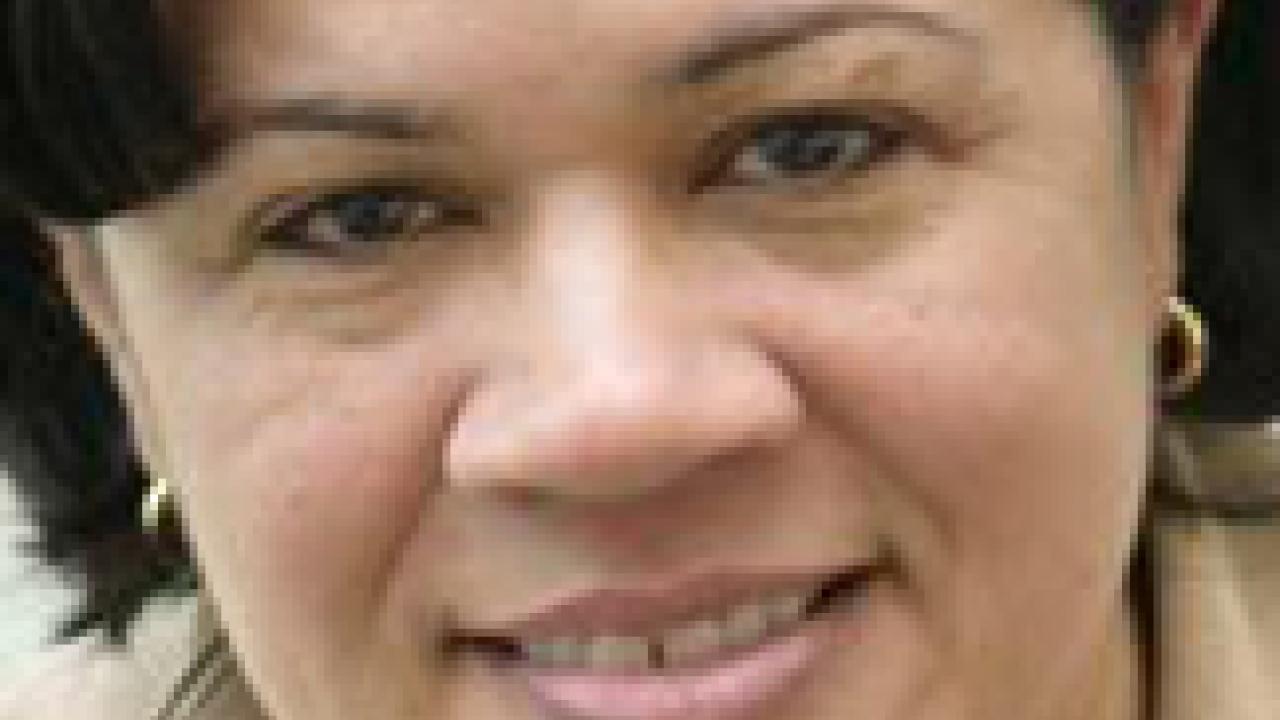GSM'S DIVERSITY INITIATIVE
Today's announcement comes as the Graduate School of Management moves forward on a schoolwide diversity initiative led by Linda Oubre. She joined the GSM last February as executive director for Corporate Relations and Business Development, and now has the added title of chief diversity officer.
"As the demographics of California change and the business world becomes more global, it is imperative that management schools continue to train leaders who can manage the complex and diverse communities that we serve,” said Oubre, who represented the GSM at the news conference in Pasadena.
Dean Steven Currall said Oubre will advise him on all diversity matters. “She will work across our constituencies to develop and implement initiatives that reflect our commitment to achieving a diverse and outstanding student body, faculty and staff," he said.
The Graduate School of Management joins the rest of the UC business schools in UC's new Summer Institute for Emerging Managers and Leaders, announced today (Jan. 24) at a news conference in Pasadena.
Initially, the all-expenses-paid fellowship program will be for students from historically black colleges and universities, with participation in the future to be broadened to include other groups who are underrepresented in leadership positions in California and the country.
"Diversity is a core value of UC Davis and the Graduate School of Management," said Steven Currall, dean of the Graduate School of Management. “We look forward to working with our partnering business schools on this program. It will bring talented students with diverse backgrounds and perspectives to California, and hopefully spark their interest in business management and encourage them to pursue an M.B.A.”
The two-week-long, career-building institute will be held annually, rotating among the six UC business and management schools, starting with UC Berkeley’s Haas School of Business as host of the 2012 session (May 20-June 2).
The other participating schools, besides the Graduate School of Management, are the Rady School of Management, San Diego; the Paul Merage School of Business, Irvine; the Anderson School of Management, Los Angeles; and the A. Gary Anderson Graduate School of Management, Riverside.
'Why would we not do this?'
The six deans came together with UC Provost Lawrence Pitts to craft the program, which secured funding from Wells Fargo Bank and WellPoint for the pilot session. "It took about 30 seconds for me to say, ‘Why would we not do this?'" said David DiCristofaro, a Wells Fargo regional president in Southern California.
Robert Davidson, board chairman of Atlanta's Morehouse College, among the nation's historically black institutions, called the summer institute "a dream for everyone involved." In order to train effective leaders, he said, California's business schools need a diverse student body, one that reflects the work force and the world in which we live.
Davidson, DiCristofaro and Pitts were among those who participated in the Pasadena news conference, held at the Robinson Memorial, honoring brothers Jackie (who broke the color barrier in baseball) and Mack (a gold-medal winning runner in the 1936 Olympics), who grew up in Pasadena.
Each class to attend 2 years in a row
Twenty-five first-year students will be selected for the inaugural program, with applications due by March 30. An additional 25 students — sophomores as well as first-year students — will be selected next year.
Each class will attend the institute two years in a row, so, starting in 2013, a total of 50 fellows will participate each summer. The students will receive instruction from world-class UC faculty, meet one-on-one with influential business leaders and possibly gain access to internship opportunities.
At the same time, UC aims to build relationships with historically black colleges and universities, as a means of increasing interest and enrollment in UC business school programs, and, ultimately, in other UC professional and graduate schools.
Boosting minority enrollment
The summer institute is one way of addressing a challenge at UC and other schools around the nation, with regard to enrolling underrepresented minorities. Of UC's 18,000 graduate and professional school students, 12 percent are from underrepresented minorities, with African Americans comprising less than 4 percent.
UC's business schools have the least representation of underrepresented students of all the university's professional degree programs, both in percentages and in actual number of students.
The institute provides an opportunity for improvement in UC diversity, within the constraints of Proposition 209, which prohibits using race as a factor in admissions.
A creative connection
Assemblyman Anthony Portantino, D-La Canada Flintridge, led the news conference in his district, which is where the idea for the summer institute originated, as a way to improve lives and opportunities for underrepresented minorities.
"California needs to do everything it can to generate entrepreneurs and innovators," Portantino said. He described the institute as a creative way to connect UC's outstanding business schools with talented students from historically black colleges and universities.
"It was an idea that came from community members in my district and I am very pleased to have facilitated this into an outstanding educational opportunity," said Portantino, a member of the Assembly Higher Education Committee.
One of those community members, Joe Hopkins, editor and publisher of the Pasadena-San Gabriel Valley News Journal, an African American newspaper, also addressed the news conference.
"Today's event is evidence of the efforts being made in education to bring together students from all walks of life," he said. "Students and their families expect the campuses to be diverse and to reflect the broader community. This program will not only benefit the students from UC and HBCUs (historically black colleges and universities), but the community as well."
Media Resources
Dave Jones, Dateline, 530-752-6556, dljones@ucdavis.edu
